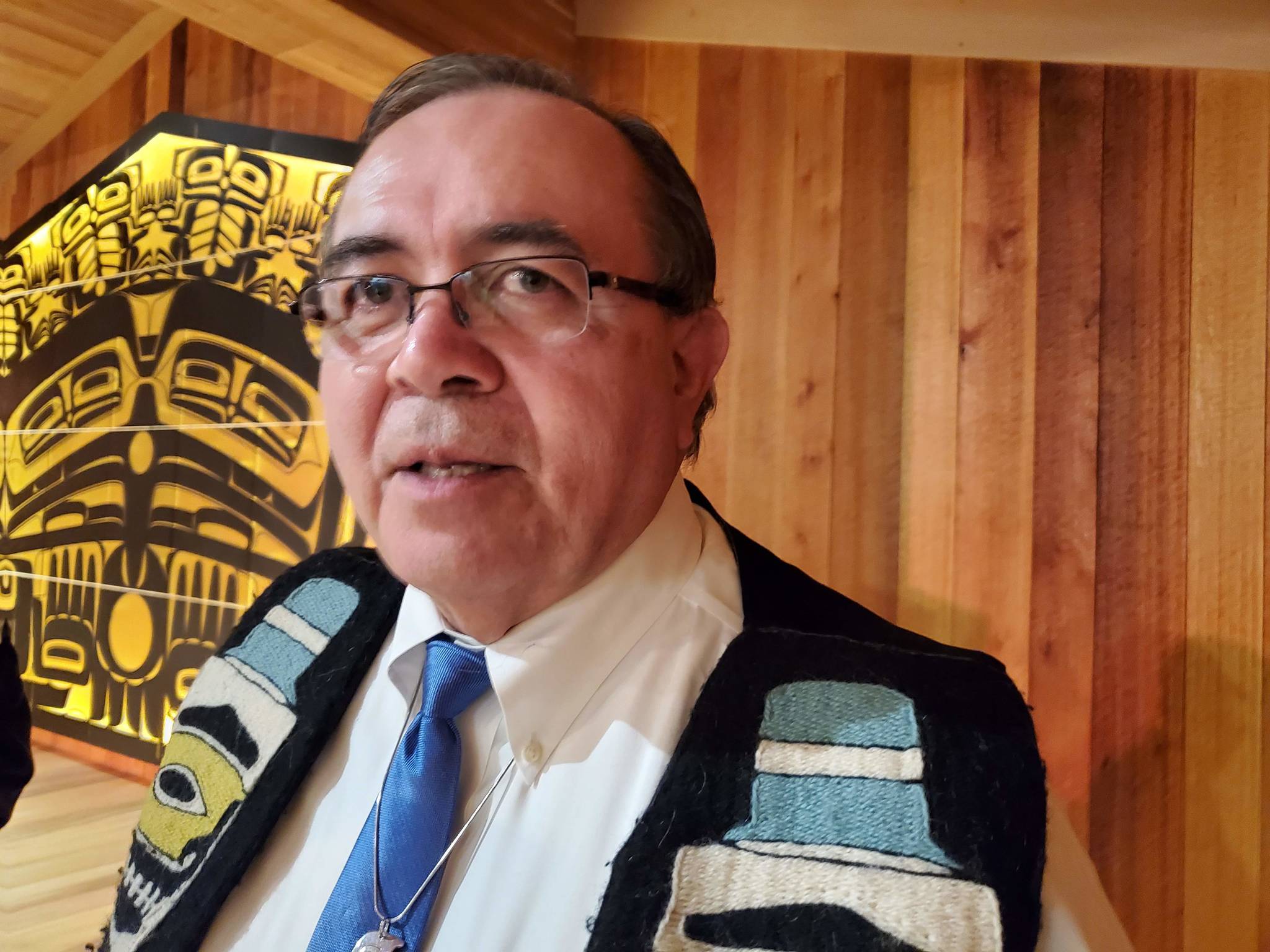A 90-year-old grassroots movement is still shaping Southeast Alaska.
Chris E. McNeil, Jr., the owner of Native Strategy Group and former president and CEO of Sealaska Corporation, said during a lecture Friday the roots of an important court case that ended with a $7.5 million settlement for Tlingit and Haida is rooted in ideas shared at a 1929 Alaska Native Brotherhood and Alaska Native Sisterhood meeting.
McNeil’s talk is part of an ongoing series of lectures hosted by Sealaska Heritage Institute this month for Native American and Alaska Native Heritage Month.
[Ferry service to Southeast towns canceled after repair costs]
McNeil said getting the wheels moving on what eventually became the Tlingit and Haida Indians of Alaska v. United States court case meant taking steam ships to Seattle from Southeast Alaska, then a cross-country train to Washington, D.C. It meant getting permission in 1935 to sue the U.S. government for taking roughly 17 million acres in land. Most of that came in the form of the 15 million acres that became Tongass National Forest. Glacier Bay National Monument added another 2 million acres to the total.
“I think they were energized,” McNeil said after his presentation. “This was done truly on the grassroots. It was done on the individual and community level. People really believed in these rights, and they were going to do everything they could to fulfill it.”
Decades later, in 1959, a court found that Tlingit and Haida had established aboriginal title to portions of Southeast Alaska, and the case wouldn’t be fully settled until 1968. McNeil said the settlement was important in shaping the tribal government Central Council of Tlingit and Haida Indian Tribes of Alaska.
“It really allowed the Tlingit and Haidas to be able to work with and create Tlingit and Haida Central Council as an operating entity,” McNeil said of the payment. “The Tlingit & Haida took the ball and ran with it. They went together and did economic studies. They put together an economic plan for the Tlingit & Haida people, and all at the same time, they were participating in the (Alaska) Native Claims Settlement Act. They did a lot of stuff at once as a result of getting the settlement.”
McNeil said years worth of studies and interviews added to the protracted length of the case.
While the settlement was pivotal, McNeil said it did not seem the government paid a fair amount for the land that was taken from Tlingit & Haida people.
[Jury announces verdict for one-time Assembly candidate accused of PFD fraud]
The settlement worked out to be about 43 cents per acre, and it did not include money for fishing rights and undervalued standing timber, McNeil said.
“It seemed pretty disingenuous to me that they would say, ‘Hey, it’s just not worth very much money,’” McNeil said. “There’s no doubt in my mind there were known ways to value this property, and they chose not to do it.”
McNeil said the decision could have been appealed, but there’s no guarantee the settlement would have been better, or if there would have been a settlement. He said the Tee-Hit-Ton v. United States case, which denied a subgroup of Tlingit people compensation for the taking of timber, may have also played a role.
“That was a hard moment for them to decide to appeal or not,” McNeil. “You have to keep in mind, in the background was the Tee-Hit-Ton case, which held there was Fifth Amendment rights for Indian takings. One of the last lines in that case said the United States could compensate, but it could do so as a gratuity.”
• Contact reporter Ben Hohenstatt at (907)523-2243 or bhohenstatt@juneauempire.com. Follow him on Twitter at @BenHohenstatt.

